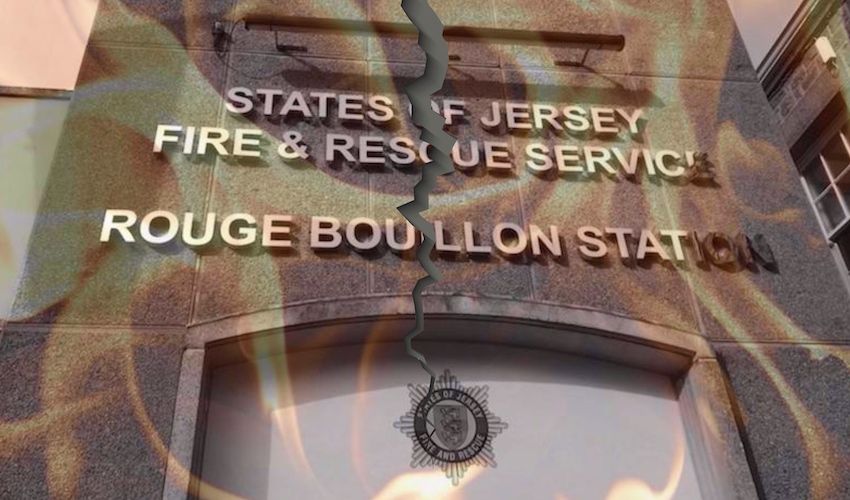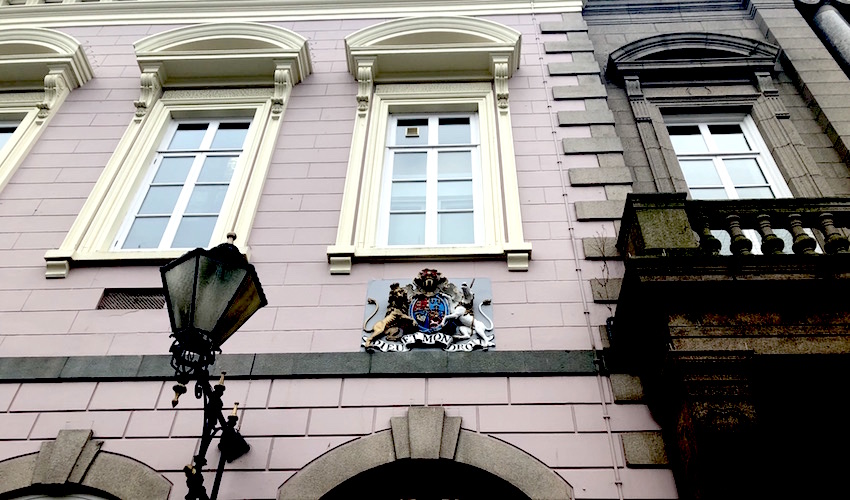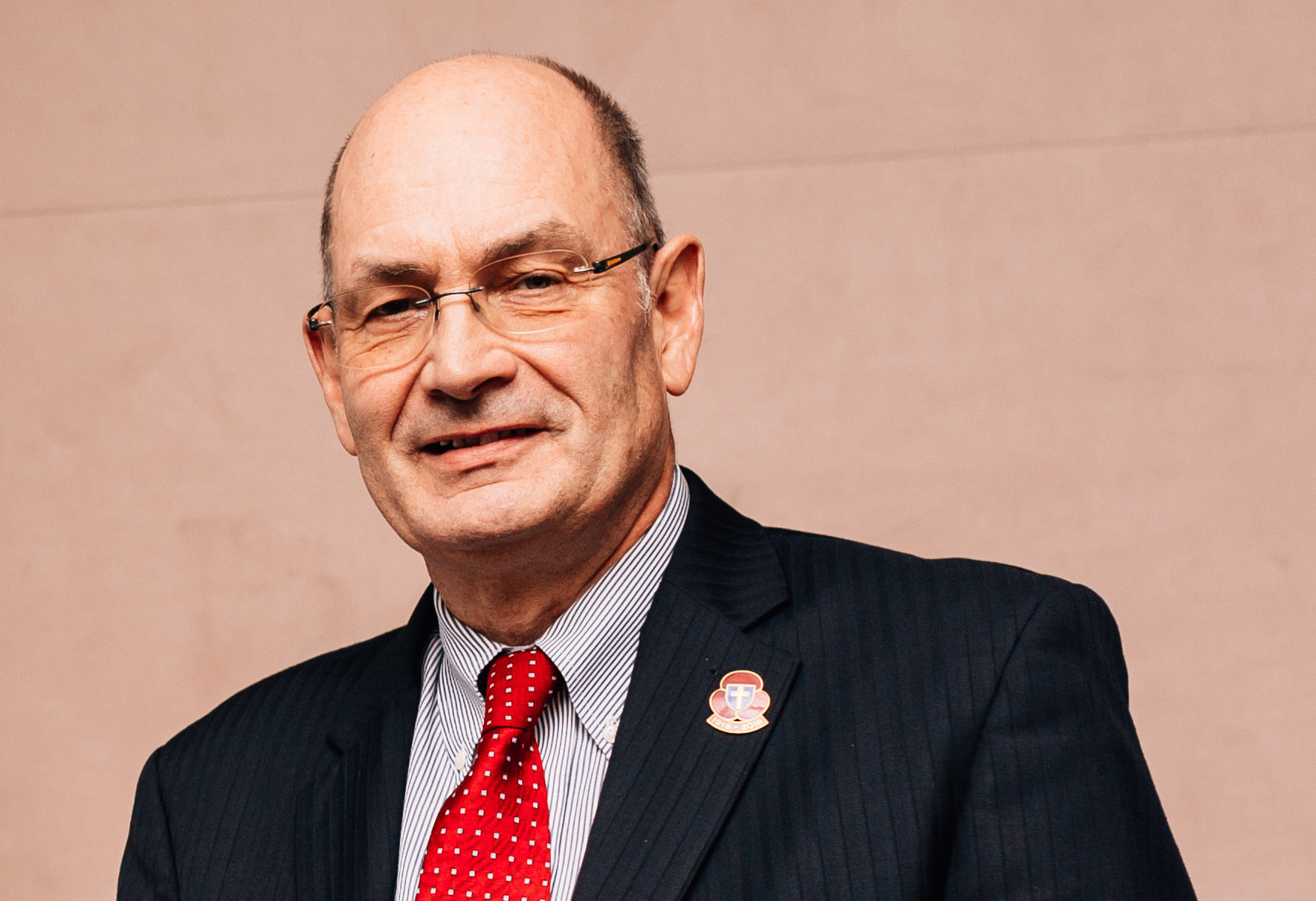


The Court of Appeal has ruled in favour of the Government in a long-running dispute with Jersey's firefighters over their pensions – despite two 'lower' courts coming to the opposite conclusion.
The fight between the States Employment Board (SEB), which is responsible for public sector pay and working conditions, and the Fire and Rescue Service Association (FRSA), arose over claims from the firefighters that they deserved compensation after being left worse off, when their pension scheme was changed.
The union claimed that the new pension scheme, known as CARE, didn’t properly reflect the careers of long-serving firefighters as it based an employee’s pension on average earnings.
As a result, the union requested financial compensation from the SEB, “...to offset the financial detriment which it claims its members will suffer, when their pension provisions change.”
Pictured: The firefighters started proceedings against the SEB in 2018.
The SEB refused to provide compensation, which led the FRSA to bring a case to the Employment Tribunal, citing a “collective employment dispute relating to the terms of employment” of its members.
The Tribunal’s Chair, Hilary Griffin, ruled in favour of the firefighters, concluding the SEB had “failed to observe the terms and conditions” of its agreement with the firefighters.
A first leave of appeal was rejected by the Tribunal but later granted by the Royal Court. However, Royal Court Commissioner Julian Clyde-Smith upheld the rulings of the Tribunal in April 2019, maintaining the victory of the firefighters’ union.
The SEB took the case to the Court of Appeal in May 2019, rejecting the view that there was a " collective employment dispute”, that it had failed to comply with an available procedure, and acted unreasonably.

Pictured: The SEB claimed the Royal Court's decision had been wrong.
The Board argued that the Royal Court should not have concluded the dispute with the FRSA was “a pay dispute” or that the term “pay” could be extended to claims for “monetary recompense” as sought by the union.
The SEB also suggested that the FRSA’s dispute was with the States Assembly rather than the SEB itself, arguing that the only reason a claim had been brought against the Board was because no claim could be brought against the Assembly.
Finally, the Board challenged the previous decisions noting that they would render the 2014 Law meaningless, by forcing the Board to enter into binding arbitrations that might award a payment to employees as compensation for pension reform.
The FRSA said they had never disputed the introduction of the CARE scheme had given rise to the dispute. They however said they were not seeking to change the scheme but rather “additional remuneration” from the SEB to “offset the financial losses” it would cause to its members.
The Court of Appeal rejected the SEB’s views that the dispute was with the legislature.

Pictured: The Court of Appeal said "every monetary payment” should count as pay.
However, it agreed that not “every monetary payment” made by the SEB as part of the firefighters’ employment counted as pay.
They wrote that it was “too simplistic” to say, as the Employment Tribunal did, that a claim by employees for financial compensation from their employer could only be a “pay” dispute.
The Court of Appeal argued that the basic concept of pay was “remuneration for work done” with employees carrying out similar functions receiving similar amounts, noting that the FRSA’s claim would require the compensation to be paid following assessments, based on individual characteristics such as age and length of service.
They also noted that the claim would “subvert the effect of the 2014 law” for affected employees, which would be a matter for discussion in the Strategic Consultation Group – on which sit representatives of management and of the FRSA Executive Committee. “…If consultation within the SCG fails to produce an outcome satisfactory to the FRSA, there is no ability to reopen the matter under the guise of making a claim for "pay,” the Court of Appeal wrote.
They therefore concluded the Tribunal’s decisions were wrong in law and the appeal should be allowed, and that the FRSA should pay for the SEB’s costs of the appeal as well as that of the hearing before the Tribunal and the Royal Court.

Pictured: Constable Richard Buchanan, the SEB's Deputy Chair.
The SEB welcomed the decision, with its Deputy Chair, Constable Richard Buchanan, stating the CARE public sector pension scheme had been introduced to “ensure that all public employees would continue to receive a good pension in retirement and that the scheme remained sustainable in the long term and affordable for the taxpayer. “
“The new pension scheme was negotiated with staff representatives in 2015 and agreed by every union in the public service except the FRSA,” they added. “The FRSA claim, had it succeeded, would have imposed unaffordable costs on the taxpayer, which is why SEB fought the claim so determinedly, at a cost £65,000 in legal time and fees, despite criticism by commentators and some politicians.”
Mr Buchanan concluded his statements saying the SEB “greatly values the hard work and commitment of Jersey’s firefighters and recognises that they have continued to serve the Island professionally and with great dedication during this long dispute.”
Comments
Comments on this story express the views of the commentator only, not Bailiwick Publishing. We are unable to guarantee the accuracy of any of those comments.